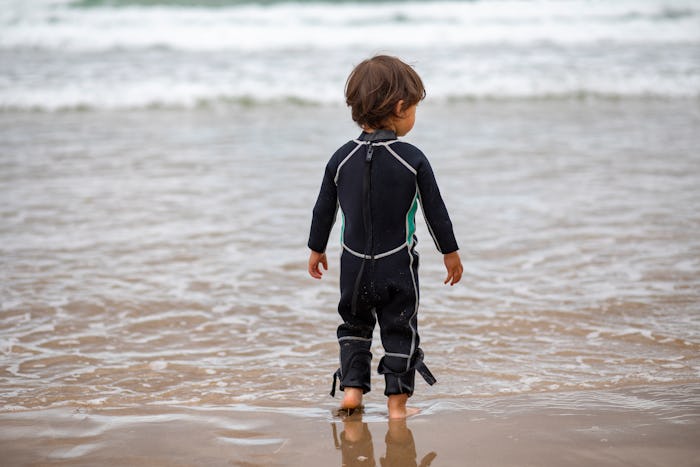Life

Here's When A Child Can Be Diagnosed With Autism
As a parent, I know how hard it is to push the idea of autism out of the back of your head, even if it's seemingly unwarranted — the concept of autism is a lot to wrap your head around and it's a condition that's a bit of a question mark. Researchers are unaware of how it develops, and since it is a spectrum disorder, there is a lot of variation in how and when symptoms appear. Some behavioral signs are said to appear as early as 6 to 12 months. But, when can a child be diagnosed with autism?
Autism is a serious developmental disorder that affects a child's ability to communicate and interact with others. For reasons that are not clear, the disorder is three to four times more common in boys than it is in girls, The Chicago Tribune noted. It's important for parents and doctors to watch for signs of autism because early intervention and treatment can make a significant difference in the life of a child with autism.
According to the American Academy of Pediatrics, many delays, including the language and social delays associated with autism, can begin to be identified by the time your child is 18 months old. By age 2, an experienced professional can provide a fairly reliable diagnosis, but most children are diagnosed between ages of 2 to 3. The Centers for Disease Control and Prevention (CDC) also confirmed that early diagnosis has been shown to improve a child's response to developmental therapies at a higher success rate than late diagnosis.
According to the National Autism Association (NAA), developmental screenings are integral in the successful and early diagnosis of autism in children. These screenings, as the NAA noted, are short tests to ensure your child is meeting appropriate milestones and learning basic skills as they should. Typically, developmental screenings are done by your pediatrician at your child's well visits, beginning at 9 months. Your pediatrician might ask you questions about your child's development, as well as talk with your child, play with your child, and observe your child to ensure their development is progressing.
If you or your pediatrician notices any regressions or warning signs, further screening and evaluation will be initiated. These evaluations might include a team, including you, your pediatrician, and other child development experts and therapists, according to Psych Central.
If you do notice any developmental delays in your child, or have any concerns regarding your child's development, it's best to speak with your pediatrician right away. Early diagnosis and treatment is most helpful in situations like these.
This article was originally published on